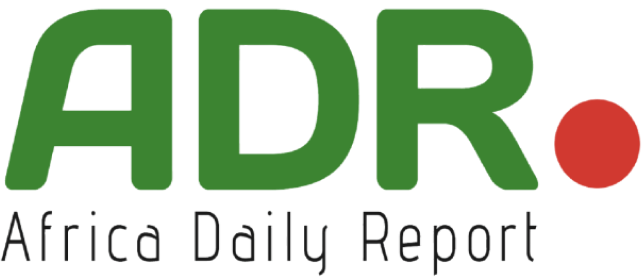
Summary:
The recent wave of sextape scandals involving African leaders has cast a harsh spotlight on the moral integrity of the continent’s elites. With leaders traditionally seen as guardians of values, these scandals strike at the heart of African expectations of leadership. They reveal not only a crisis of public trust but also a profound disconnect between those in power and the societies they serve. As the continent’s youth look to these figures for guidance, can African leaders rise above personal indiscretions and embody the moral virtues they preach? This analysis delves into the societal impacts, examines the role of social media in amplifying public outrage, and calls for transformative reform, urging African elites to honor their responsibility as role models.
Introduction: The Crisis of Integrity Among African Leaders
As Africa’s youth gaze towards their leaders for guidance and inspiration, recent sextape scandals have exposed a troubling moral crisis among the continent’s elites. In societies where leaders are revered as custodians of values, these scandals are not merely private affairs—they are a betrayal of public trust that cuts deeply. For a young, ambitious Africa, the stakes are high: can its leaders embody the values they espouse, or will they instead perpetuate an image of corruption and immorality that damages the public’s faith? This analysis explores the impact of these scandals on the moral fabric of African societies, questioning the role of elites and their responsibility to inspire integrity and accountability.
A Wave of Scandals: When Public Trust is Shattered
Recent scandals in Equatorial Guinea, Cameroon, and the Democratic Republic of the Congo have shaken public faith in the moral compass of Africa’s leadership. In Equatorial Guinea, the case of Baltasar Ebang Engonga, a high-ranking official, has revealed both financial corruption and personal misconduct, intensifying the perception of a deeply corrupt political elite. Transparency International ranks Equatorial Guinea at 174th globally in corruption, underscoring the profound crisis of legitimacy in the nation’s institutions.
In the DRC, the release of a compromising video of Deputy Minister Enock Ruberangabo Sebineza has sparked public outcry, highlighting the moral disconnect within government circles. According to the Congolese Governance Research Institute, 68% of Congolese believe their leaders lack integrity, a perception that is eating away at trust in the state.
Social Media as the People’s Court: Outrage Amplified
Social media has become the unofficial court of public opinion, amplifying anger and frustration across the continent. In Cameroon, the Martin Camus Mimb affair ignited a #MeTooAfrique movement, empowering young Africans to demand better conduct from their leaders. According to the African Digital Rights Network, 72% of young Africans view social media as a powerful tool to hold leaders accountable, reflecting a generational shift toward transparency and civic engagement.
A Betrayal of Traditional Values: A Disconnect with African Cultural Expectations
Historically, African leaders have been revered as symbols of integrity and guidance, embodying values such as respect and dignity. A 2023 survey by Afrobarometer revealed that 78% of Africans see their leaders as corrupt, a perception that clashes with traditional cultural expectations. However, Rwanda stands as an example of reform; ranked 51st in Transparency International’s Corruption Perception Index, the country’s strict anti-corruption policies prove that ethical governance is achievable.
The Stigmatization of Women: A Double Standard
These scandals also spotlight the unequal treatment women face, as they often bear the brunt of public judgment. In societies where women are respected as mothers and caretakers, they are nonetheless stigmatized harshly in cases of moral misconduct. For instance, Malicka Bayemi, implicated in Cameroon’s scandal, has faced severe social backlash. Equality Now reports that 60% of African women involved in similar scandals face prolonged social stigma, underscoring a troubling double standard that leaves women more vulnerable to moral judgment than their male counterparts.
Leadership as Moral Education: A Duty to Inspire
African leaders must recognize the profound influence they have on young people across the continent. With over 60% of Africa’s population under 25, leaders’ actions set a powerful example. They must embody the values they advocate and uphold a standard of integrity that young people can aspire to. Failing this, Africa risks raising a generation that has little faith in leadership and public institutions.
Legislative Reforms and Preventive Measures
To prevent further scandals, African nations should consider implementing legal reforms that require high moral standards for public officials. Strong ethics committees and independent oversight institutions could enforce accountability, ensuring leaders understand their role as models for society. Legal safeguards would send a strong message that public office demands exemplary conduct, and those who deviate will face consequences.
The Role of Education and Media
Education and media have critical roles to play in shaping future generations’ moral standards. Incorporating civic responsibility and ethics into school curricula would prepare future leaders who value transparency and accountability. Meanwhile, independent media must continue to expose misconduct, ensuring that the public remains informed and empowered. A transparent media landscape can also inspire trust by holding power accountable.
International Perception and Global Comparisons
These scandals impact Africa’s global image, influencing investor confidence and diplomatic relations. In other regions, scandals have led to severe consequences for leaders, underscoring the importance of accountability. Sweden and New Zealand, for example, maintain high ethical standards, demonstrating that ethical leadership enhances a nation’s international standing. If African leaders uphold similar standards, they can not only win back public trust but also attract international goodwill and investment.
The Diaspora and Civil Society: Catalysts for Change
Africa’s diaspora is increasingly vocal about the need for ethical governance. Organizations such as the Union of Young Africans push for integrity among leaders, encouraging civic awareness and lobbying for reform. On the continent, civil society groups, including NGOs and religious organizations, are critical in advocating for accountability and integrity, showing that change must come from both within and outside government structures.
Economic Impact: Scandals Hurt More Than Morals
Beyond moral implications, these scandals bear significant economic consequences. Corruption and unethical conduct deter investment and fuel financial mismanagement. The African Development Bank estimates that corruption costs African countries up to $148 billion annually, a loss that directly affects public services and economic growth. The fight for moral governance is therefore not only about principles but also about prosperity.
Role Models in African Leadership: Inspiring Integrity
Amid the scandals, Africa has produced leaders like Nelson Mandela and Ellen Johnson Sirleaf, who exemplify values of courage and integrity. Mandela’s self-sacrifice for justice and Sirleaf’s commitment to ethical leadership offer blueprints for a dignified approach to governance. Including such role models in civic education could help inspire future generations to pursue public service with honor and responsibility.
Conclusion: Toward a Moral Reawakening in African Leadership
The recent sextape scandals highlight the urgent need for moral reform among African elites. African leaders, entrusted with public office, have a duty to embody the values they promote. Through legislative reform, support from the diaspora, responsible media, and comprehensive civic education, Africa can foster a climate of accountability and transparency. As the continent’s youth look to the future, the path forward lies in a governance model that values dignity, integrity, and moral accountability. Africa’s destiny depends on this transformation, where exemplary leadership becomes the foundation of a prosperous and just society.
© Odon Bulamba / Africa Daily Report




